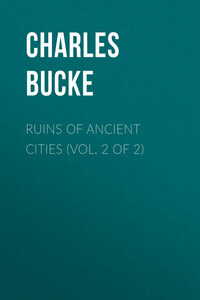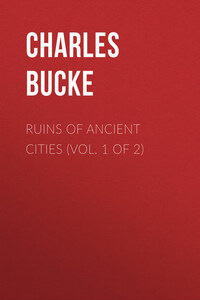Pausanias1 appears to have had great interest in the history of the Messenians; for his history of their wars is more minute and animated than any other part of his narrative. His account of the city gives us a grand idea of what it must once have been; and the present splendid remains produce a conviction of his veracity.
The walls of Messene2, built of hewn stone, crowned with battlements, and flanked with towers, were stronger and higher than those of Byzantium, Rhodes, and the other cities of Greece. They included within their circuit Mount Ithome. It had a large public square or forum, ornamented with temples, statues, and a splendid fountain. Beautiful edifices were on every side.
The Messenians had several wars with the Lacedæmonians; and at one time were so unfortunate as to be reduced to the condition of the Helots. They were at length, however, reinstated by the Thebans, who took their city from the Spartans, who had possessed it a long time, after having expelled all its inhabitants. Those who were dispersed in different regions of Greece, Italy, and Sicily, on the first notice given them, returned with incredible joy: animated by the love of their country, natural to all men, and almost as much by their hatred of the Spartans, which length of time had only increased. They built themselves a city, which, from the ancient name, was called Messene.
After their return they fell out with the Achaians, and having worsted their celebrated general, Philopœmen, they had the meanness and atrocity to put him to death. His history is thus related by Rollin: —
“Dinocrates, the Messenian, had drawn off Messene from the Achaian league; and was meditating how he might best seize upon a considerable post near that city. Philopœmen, then seventy years of age, and generalissimo of the Achaians for the eighth time, lay sick. However, the instant the news of this was brought him, he set out, notwithstanding his indisposition, made a counter-march, and advanced towards Messene with a small body of forces. Dinocrates, who had marched out against him, was soon put to flight; but five hundred troopers, who guarded the open country of Messene, happening to come up and reinforce him, he faced about and routed Philopœmen. This general, who was solicitous of nothing but to save the gallant youths who had followed him in this expedition, performed the most extraordinary acts of bravery; but happening to fall from his horse, and receiving a deep wound in the head, he was taken prisoner by the enemy, who carried him to Messene.
“Upon the arrival of the news that Philopœmen was taken prisoner, and on his way to the city, the Messenians ran to the gates; not being able to persuade themselves of the truth of what they heard, till they saw him themselves; so greatly improbable did this relation appear to them. To satisfy the violent curiosity of the inhabitants, many of whom had not yet been able to get a sight of him, they were forced to show the illustrious prisoner on the theatre. When they beheld Philopœmen, dragged along in chains, most of the spectators were so moved to compassion, that the tears trickled from their eyes. There even was heard a murmur among the people, which resulted from humanity, and a very laudable gratitude; “That the Messenians ought to call to mind the great services done by Philopœmen, and his preserving the liberty of Achaia, by the defeat of Nabis the tyrant.” But the magistrates did not suffer him to be long exhibited in this manner, lest the pity of the people should be attended with ill consequences. They therefore took him away on a sudden; and, after consulting together, caused him to be conveyed to a place called the Treasury. This was a subterraneous place, whither neither light nor air entered from without, and had no door to it, but was shut with a huge stone that was rolled over the entrance of it. In this dungeon they imprisoned Philopœmen, and posted a guard round every part of it.
“As soon as it was night, and all the people were withdrawn, Dinocrates caused the stone to be rolled away, and the executioner to descend into the dungeon with a dose of poison to Philopœmen, commanding him not to stir till he had swallowed it. The moment the illustrious Megalopolitan perceived the first glimmerings of light, and saw the man advance towards him, with a lamp in one hand and a sword in the other, he raised himself with the utmost difficulty, for he was very weak, sat down, and then taking the cup, he inquired of the executioner, whether he could tell what was become of the young Megalopolitans his followers, particularly Lycortas? The executioner answering, that he heard almost all had saved themselves by flight, Philopœmen thanked him by a nod, and looking kindly on him, – “You bring me,” says he, “good news; and I find we are not entirely unfortunate;” after which, without breathing the least complaint, he swallowed the deadly dose, and laid himself again on his cloak. The poison was very speedy in its effects; for Philopœmen, being extremely weak and feeble, expired in a moment.









